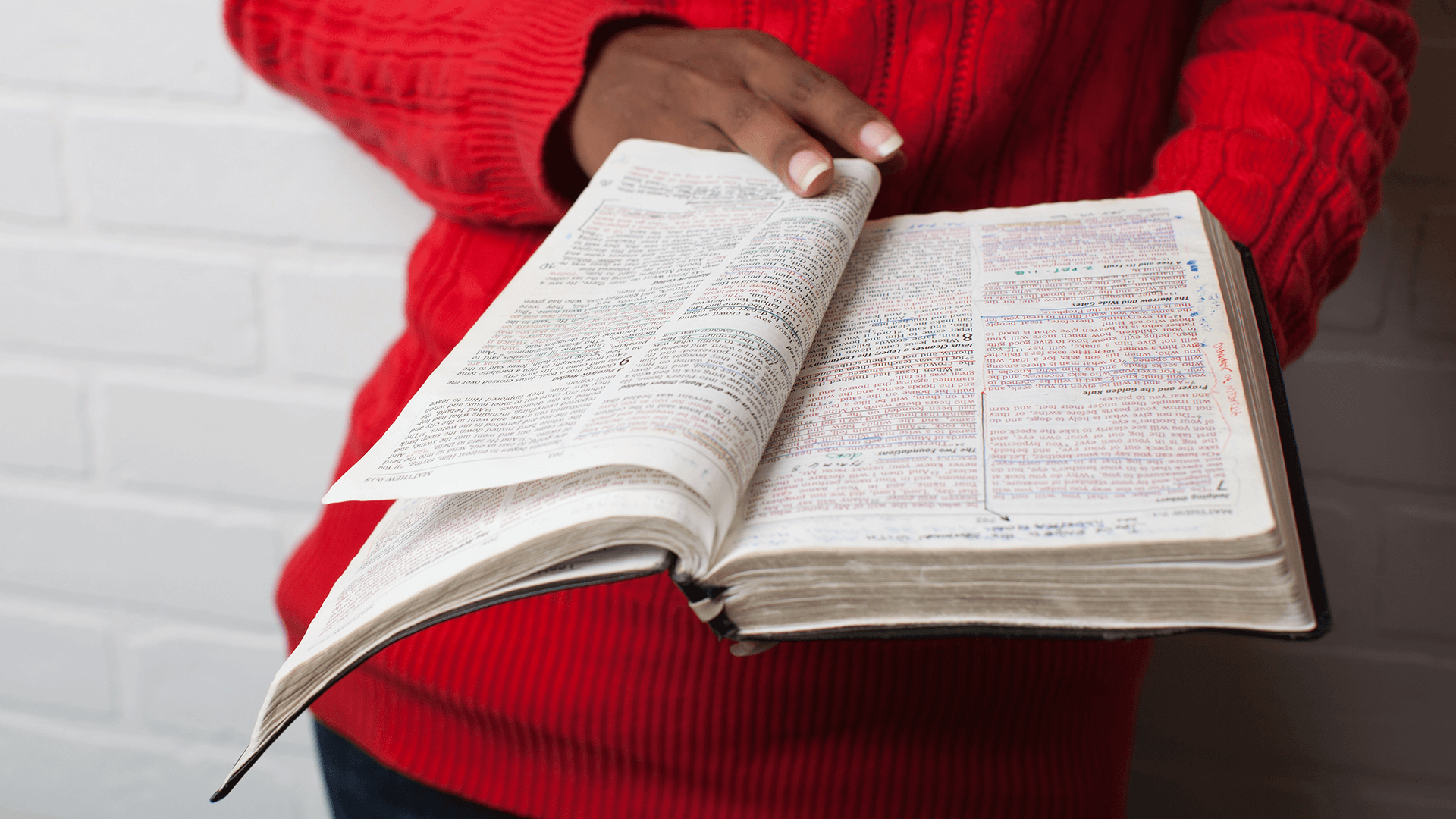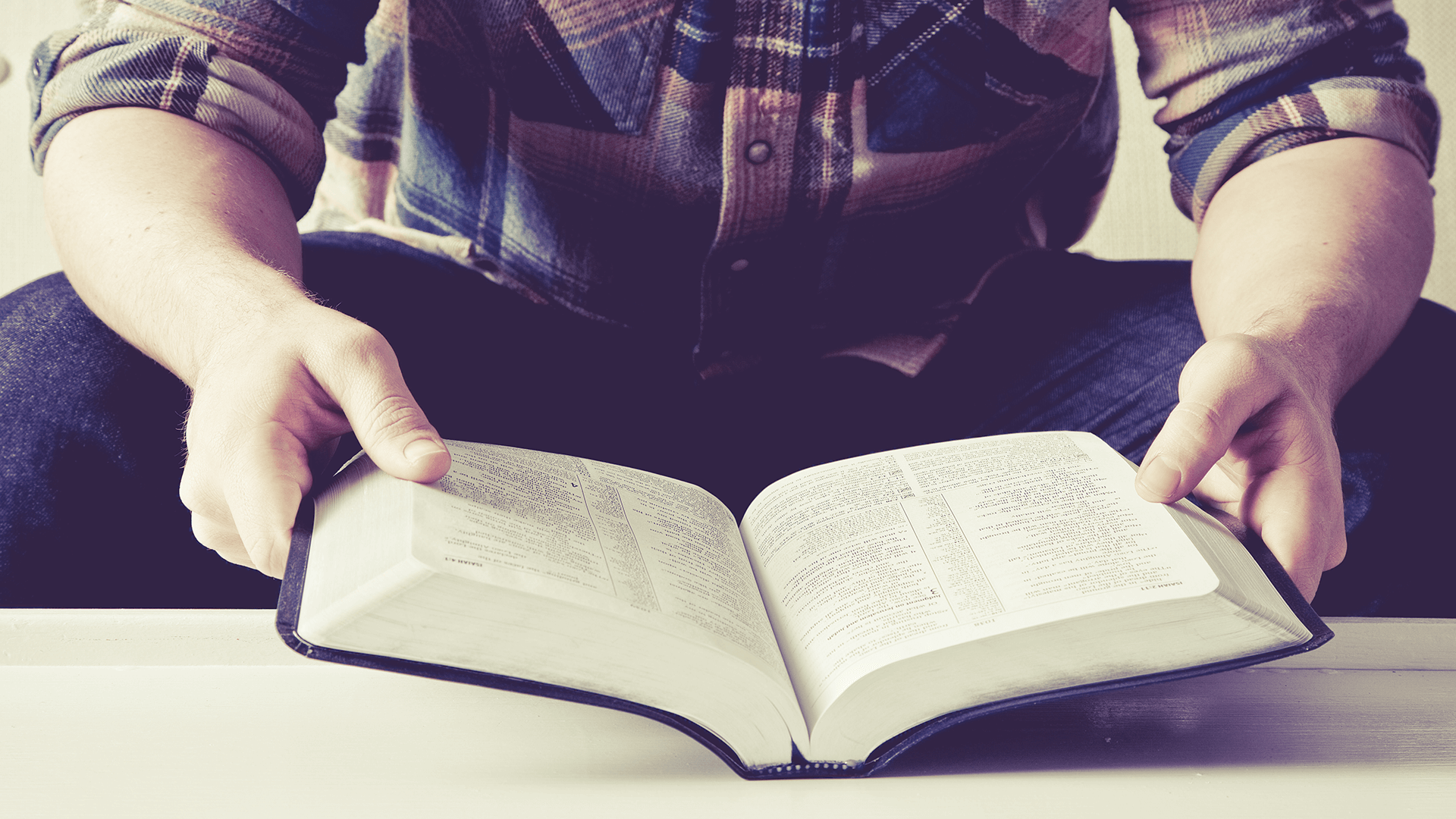August 6th, 2022
August 06, 2022

Today's Reading:
New Testament & Psalms Plan: Acts 27:13–44, Psalm 90:4–10, Nehemiah 1–4
Entire Bible Plan: Acts 27:13–44, Psalm 90:4–10, Nehemiah 1–4
Download NT & Psalms Plan Download Entire Bible Plan
Storm-Tossed Ship
When a gentle south wind sprang up, they thought they had achieved their purpose. They weighed anchor and sailed along the shore of Crete. But before long, a fierce wind called the "northeaster" rushed down from the island. Since the ship was caught and unable to head into the wind, we gave way to it and were driven along. After running under the shelter of a little island called Cauda, we were barely able to get control of the skiff. After hoisting it up, they used ropes and tackle and girded the ship. Fearing they would run aground on the Syrtis, they lowered the drift-anchor, and in this way they were driven along. Because we were being severely battered by the storm, they began to jettison the cargo the next day. On the third day, they threw the ship's tackle overboard with their own hands. For many days neither sun nor stars appeared, and the severe storm kept raging. Finally all hope was fading that we would be saved.
Since they had been without food for a long time, Paul then stood up among them and said, "You men should have followed my advice not to sail from Crete and sustain this damage and loss. Now I urge you to take courage, because there will be no loss of any of your lives, but only of the ship. For last night an angel of the God I belong to and serve stood by me and said, 'Don't be afraid, Paul. It is necessary for you to appear before Caesar. And indeed, God has graciously given you all those who are sailing with you.' So take courage, men, because I believe God that it will be just the way it was told to me. But we have to run aground on some island."
When the fourteenth night came, we were drifting in the Adriatic Sea, and about midnight the sailors thought they were approaching land. They took soundings and found it to be a hundred twenty feet deep; when they had sailed a little farther and sounded again, they found it to be ninety feet deep. Then, fearing we might run aground on the rocks, they dropped four anchors from the stern and prayed for daylight to come. Some sailors tried to escape from the ship; they had let down the skiff into the sea, pretending that they were going to put out anchors from the bow. Paul said to the centurion and the soldiers, "Unless these men stay in the ship, you cannot be saved." Then the soldiers cut the ropes holding the skiff and let it drop away.
When it was about daylight, Paul urged them all to take food, saying, "Today is the fourteenth day that you have been waiting and going without food, having eaten nothing. So I urge you to take some food. For this is for your survival, since none of you will lose a hair from your head." After he said these things and had taken some bread, he gave thanks to God in the presence of all of them, and after he broke it, he began to eat. They all were encouraged and took food themselves. In all there were 276 of us on the ship. When they had eaten enough, they began to lighten the ship by throwing the grain overboard into the sea.
Shipwreck
When daylight came, they did not recognize the land but sighted a bay with a beach. They planned to run the ship ashore if they could. After cutting loose the anchors, they left them in the sea, at the same time loosening the ropes that held the rudders. Then they hoisted the foresail to the wind and headed for the beach. But they struck a sandbar and ran the ship aground. The bow jammed fast and remained immovable, while the stern began to break up by the pounding of the waves. The soldiers' plan was to kill the prisoners so that no one could swim away and escape. But the centurion kept them from carrying out their plan because he wanted to save Paul, and so he ordered those who could swim to jump overboard first and get to land. The rest were to follow, some on planks and some on debris from the ship. In this way, everyone safely reached the shore.
Scripture quotations have been taken from the Christian Standard Bible®, Copyright © 2017 by Holman Bible Publishers. Used by permission. Christian Standard Bible® and CSB® are federally registered trademarks of Holman Bible Publishers.
are like yesterday that passes by,
like a few hours of the night.
You end their lives; they sleep.
They are like grass that grows in the morning—
in the morning it sprouts and grows;
by evening it withers and dries up.
For we are consumed by your anger;
we are terrified by your wrath.
You have set our iniquities before you,
our secret sins in the light of your presence.
For all our days ebb away under your wrath;
we end our years like a sigh.
Our lives last seventy years
or, if we are strong, eighty years.
Even the best of them are struggle and sorrow;
indeed, they pass quickly and we fly away.
Scripture quotations have been taken from the Christian Standard Bible®, Copyright © 2017 by Holman Bible Publishers. Used by permission. Christian Standard Bible® and CSB® are federally registered trademarks of Holman Bible Publishers.
The words of Nehemiah son of Hacaliah:
News from Jerusalem
During the month of Chislev in the twentieth year, when I was in the fortress city of Susa, Hanani, one of my brothers, arrived with men from Judah, and I questioned them about Jerusalem and the Jewish remnant that had survived the exile. They said to me, "The remnant in the province, who survived the exile, are in great trouble and disgrace. Jerusalem's wall has been broken down, and its gates have been burned."
Nehemiah's Prayer
When I heard these words, I sat down and wept. I mourned for a number of days, fasting and praying before the God of the heavens. I said,
Lord, the God of the heavens, the great and awe-inspiring God who keeps his gracious covenant with those who love him and keep his commands, let your eyes be open and your ears be attentive to hear your servant's prayer that I now pray to you day and night for your servants, the Israelites. I confess the sins we have committed against you. Both I and my father's family have sinned. We have acted corruptly toward you and have not kept the commands, statutes, and ordinances you gave your servant Moses. Please remember what you commanded your servant Moses: "If you are unfaithful, I will scatter you among the peoples. But if you return to me and carefully observe my commands, even though your exiles were banished to the farthest horizon, I will gather them from there and bring them to the place where I chose to have my name dwell." They are your servants and your people. You redeemed them by your great power and strong hand. Please, Lord, let your ear be attentive to the prayer of your servant and to that of your servants who delight to revere your name. Give your servant success today, and grant him compassion in the presence of this man.
At the time, I was the king's cupbearer.
Nehemiah Sent to Jerusalem
During the month of Nisan in the twentieth year of King Artaxerxes, when wine was set before him, I took the wine and gave it to the king. I had never been sad in his presence, so the king said to me, "Why do you look so sad, when you aren't sick? This is nothing but sadness of heart."
I was overwhelmed with fear and replied to the king, "May the king live forever! Why should I not be sad when the city where my ancestors are buried lies in ruins and its gates have been destroyed by fire?"
Then the king asked me, "What is your request?"
So I prayed to the God of the heavens and answered the king, "If it pleases the king, and if your servant has found favor with you, send me to Judah and to the city where my ancestors are buried, so that I may rebuild it."
The king, with the queen seated beside him, asked me, "How long will your journey take, and when will you return?" So I gave him a definite time, and it pleased the king to send me.
I also said to the king, "If it pleases the king, let me have letters written to the governors of the region west of the Euphrates River, so that they will grant me safe passage until I reach Judah. And let me have a letter written to Asaph, keeper of the king's forest, so that he will give me timber to rebuild the gates of the temple's fortress, the city wall, and the home where I will live." The king granted my requests, for the gracious hand of my God was on me.
I went to the governors of the region west of the Euphrates and gave them the king's letters. The king had also sent officers of the infantry and cavalry with me. When Sanballat the Horonite and Tobiah the Ammonite official heard that someone had come to pursue the prosperity of the Israelites, they were greatly displeased.
Preparing to Rebuild the Walls
After I arrived in Jerusalem and had been there three days, I got up at night and took a few men with me. I didn't tell anyone what my God had laid on my heart to do for Jerusalem. The only animal I took was the one I was riding. I went out at night through the Valley Gate toward the Serpent's Well and the Dung Gate, and I inspected the walls of Jerusalem that had been broken down and its gates that had been destroyed by fire. I went on to the Fountain Gate and the King's Pool, but farther down it became too narrow for my animal to go through. So I went up at night by way of the valley and inspected the wall. Then heading back, I entered through the Valley Gate and returned. The officials did not know where I had gone or what I was doing, for I had not yet told the Jews, priests, nobles, officials, or the rest of those who would be doing the work. So I said to them, "You see the trouble we are in. Jerusalem lies in ruins and its gates have been burned. Come, let's rebuild Jerusalem's wall, so that we will no longer be a disgrace." I told them how the gracious hand of my God had been on me, and what the king had said to me.
They said, "Let's start rebuilding," and their hands were strengthened to do this good work.
When Sanballat the Horonite, Tobiah the Ammonite official, and Geshem the Arab heard about this, they mocked and despised us, and said, "What is this you're doing? Are you rebelling against the king?"
I gave them this reply, "The God of the heavens is the one who will grant us success. We, his servants, will start building, but you have no share, right, or historic claim in Jerusalem."
Rebuilding the Walls
The high priest Eliashib and his fellow priests began rebuilding the Sheep Gate. They dedicated it and installed its doors. After building the wall to the Tower of the Hundred and the Tower of Hananel, they dedicated it. The men of Jericho built next to Eliashib, and next to them Zaccur son of Imri built.
Fish Gate
The sons of Hassenaah built the Fish Gate. They built it with beams and installed its doors, bolts, and bars. Next to them Meremoth son of Uriah, son of Hakkoz, made repairs. Beside them Meshullam son of Berechiah, son of Meshezabel, made repairs. Next to them Zadok son of Baana made repairs. Beside them the Tekoites made repairs, but their nobles did not lift a finger to help their supervisors.
Old Gate, Broad Wall, and Tower of the Ovens
Joiada son of Paseah and Meshullam son of Besodeiah repaired the Old Gate. They built it with beams and installed its doors, bolts, and bars. Next to them the repairs were done by Melatiah the Gibeonite, Jadon the Meronothite, and the men of Gibeon and Mizpah, who were under the authority of the governor of the region west of the Euphrates River. After him Uzziel son of Harhaiah, the goldsmith, made repairs, and next to him Hananiah son of the perfumer made repairs. They restored Jerusalem as far as the Broad Wall.
Next to them Rephaiah son of Hur, ruler of half the district of Jerusalem, made repairs. After them Jedaiah son of Harumaph made repairs across from his house. Next to him Hattush the son of Hashabneiah made repairs. Malchijah son of Harim and Hasshub son of Pahath-moab made repairs to another section, as well as to the Tower of the Ovens. Beside him Shallum son of Hallohesh, ruler of half the district of Jerusalem, made repairs—he and his daughters.
Valley Gate, Dung Gate, and Fountain Gate
Hanun and the inhabitants of Zanoah repaired the Valley Gate. They rebuilt it and installed its doors, bolts, and bars, and repaired five hundred yards of the wall to the Dung Gate. Malchijah son of Rechab, ruler of the district of Beth-haccherem, repaired the Dung Gate. He rebuilt it and installed its doors, bolts, and bars.
Shallun son of Col-hozeh, ruler of the district of Mizpah, repaired the Fountain Gate. He rebuilt it and roofed it. Then he installed its doors, bolts, and bars. He also made repairs to the wall of the Pool of Shelah near the king's garden, as far as the stairs that descend from the city of David.
After him Nehemiah son of Azbuk, ruler of half the district of Beth-zur, made repairs up to a point opposite the tombs of David, as far as the artificial pool and the House of the Warriors. Next to him the Levites made repairs under Rehum son of Bani. Beside him Hashabiah, ruler of half the district of Keilah, made repairs for his district. After him their fellow Levites made repairs under Binnui son of Henadad, ruler of half the district of Keilah. Next to him Ezer son of Jeshua, ruler of Mizpah, made repairs to another section opposite the ascent to the armory at the Angle.
The Angle, Water Gate, and Tower on Ophel
After him Baruch son of Zabbai diligently repaired another section, from the Angle to the door of the house of the high priest Eliashib. Beside him Meremoth son of Uriah, son of Hakkoz, made repairs to another section, from the door of Eliashib's house to the end of his house. And next to him the priests from the surrounding area made repairs.
After them Benjamin and Hasshub made repairs opposite their house. Beside them Azariah son of Maaseiah, son of Ananiah, made repairs beside his house. After him Binnui son of Henadad made repairs to another section, from the house of Azariah to the Angle and the corner. Palal son of Uzai made repairs opposite the Angle and tower that juts out from the king's upper palace, by the courtyard of the guard. Beside him Pedaiah son of Parosh and the temple servants living on Ophel made repairs opposite the Water Gate toward the east and the tower that juts out. Next to him the Tekoites made repairs to another section from a point opposite the great tower that juts out, as far as the wall of Ophel.
Horse Gate, Inspection Gate, and Sheep Gate
Each of the priests made repairs above the Horse Gate, each opposite his own house. After them Zadok son of Immer made repairs opposite his house. And beside him Shemaiah son of Shecaniah, guard of the East Gate, made repairs. Next to him Hananiah son of Shelemiah and Hanun the sixth son of Zalaph made repairs to another section.
After them Meshullam son of Berechiah made repairs opposite his room. Next to him Malchijah, one of the goldsmiths, made repairs to the house of the temple servants and the merchants, opposite the Inspection Gate, and as far as the upstairs room on the corner. The goldsmiths and merchants made repairs between the upstairs room on the corner and the Sheep Gate.
Progress in Spite of Opposition
When Sanballat heard that we were rebuilding the wall, he became furious. He mocked the Jews before his colleagues and the powerful men of Samaria and said, "What are these pathetic Jews doing? Can they restore it by themselves? Will they offer sacrifices? Will they ever finish it? Can they bring these burnt stones back to life from the mounds of rubble?" Then Tobiah the Ammonite, who was beside him, said, "Indeed, even if a fox climbed up what they are building, he would break down their stone wall!"
Listen, our God, for we are despised. Make their insults return on their own heads and let them be taken as plunder to a land of captivity. Do not cover their guilt or let their sin be erased from your sight, because they have angered the builders.
So we rebuilt the wall until the entire wall was joined together up to half its height, for the people had the will to keep working.
When Sanballat, Tobiah, and the Arabs, Ammonites, and Ashdodites heard that the repair to the walls of Jerusalem was progressing and that the gaps were being closed, they became furious. They all plotted together to come and fight against Jerusalem and throw it into confusion. So we prayed to our God and stationed a guard because of them day and night.
In Judah, it was said:
The strength of the laborer fails,
since there is so much rubble.
We will never be able
to rebuild the wall.
And our enemies said, "They won't realize it until we're among them and can kill them and stop the work." When the Jews who lived nearby arrived, they said to us time and again, "Everywhere you turn, they attack us." So I stationed people behind the lowest sections of the wall, at the vulnerable areas. I stationed them by families with their swords, spears, and bows. After I made an inspection, I stood up and said to the nobles, the officials, and the rest of the people, "Don't be afraid of them. Remember the great and awe-inspiring Lord, and fight for your countrymen, your sons and daughters, your wives and homes."
Sword and Trowel
When our enemies heard that we knew their scheme and that God had frustrated it, every one of us returned to his own work on the wall. From that day on, half of my men did the work while the other half held spears, shields, bows, and armor. The officers supported all the people of Judah, who were rebuilding the wall. The laborers who carried the loads worked with one hand and held a weapon with the other. Each of the builders had his sword strapped around his waist while he was building, and the one who sounded the ram's horn was beside me. Then I said to the nobles, the officials, and the rest of the people, "The work is enormous and spread out, and we are separated far from one another along the wall. Wherever you hear the sound of the ram's horn, rally to us there. Our God will fight for us!" So we continued the work, while half of the men were holding spears from daybreak until the stars came out. At that time, I also said to the people, "Let everyone and his servant spend the night inside Jerusalem, so that they can stand guard by night and work by day." And I, my brothers, my servants, and the men of the guard with me never took off our clothes. Each carried his weapon, even when washing.




Login To Leave Comment